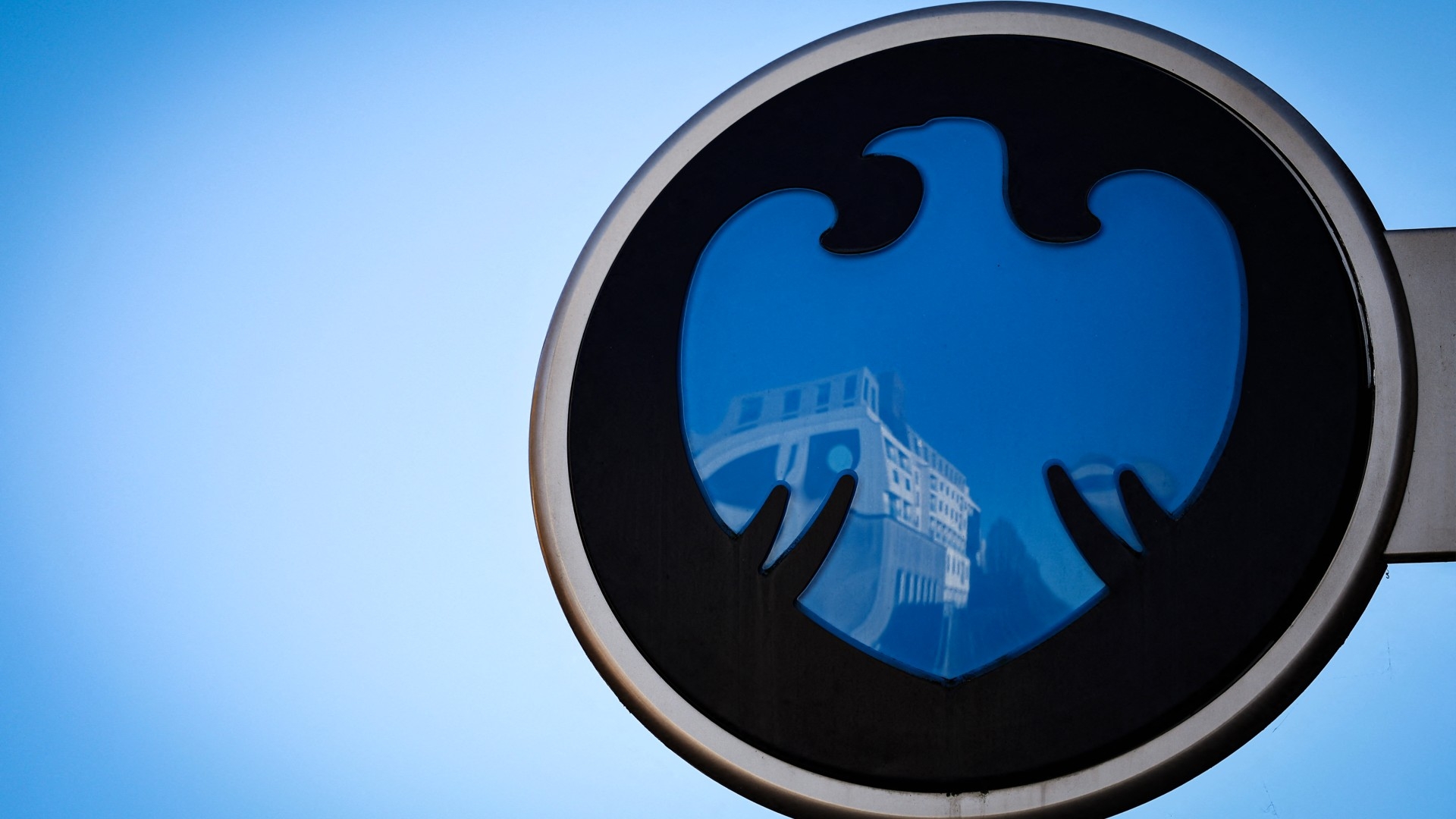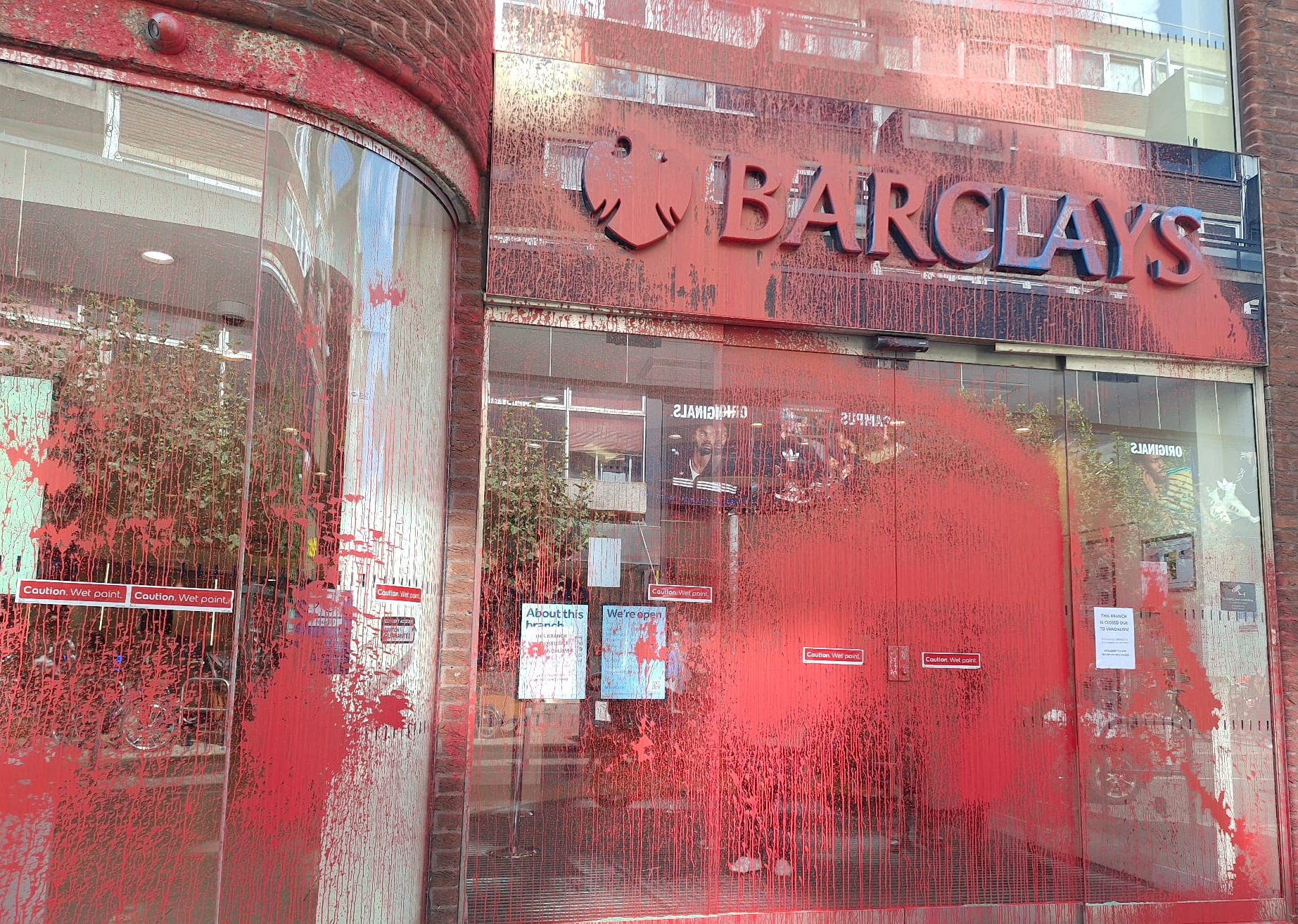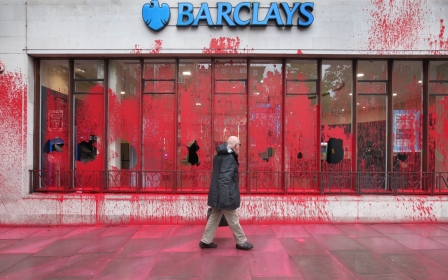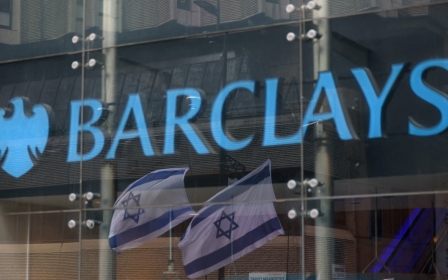Barclays sells all shares in Israeli weapons firm Elbit amid pro-Palestinian pressure

British banking giant Barclays has sold all of its investment shareholdings in Israel’s largest weapons company Elbit Systems Ltd.
According to Palestine Action, a British activist group that has been protesting against the bank's investments in Israel, Barclays has until recently owned over 16,000 shares in Elbit Systems.
In the latest US Securities and Exchange Commission (SEC) filings, Barclays owned zero shares in Elbit Systems Ltd (ELST), down 16,345 since the previous filing, dated 15 May 2024, worth over $3.4m.
"The most recent SEC filings and NASDAQ data record an immediate total sale of Barclays’ ELST shares, abruptly sold just when Palestine Action’s campaign hit them hardest," Palestine Action said.
A Barclays spokesperson denied that the company has been a shareholder in Elbit Systems as such.
New MEE newsletter: Jerusalem Dispatch
Sign up to get the latest insights and analysis on Israel-Palestine, alongside Turkey Unpacked and other MEE newsletters
“Barclays trades in shares of listed companies in response to client instruction or demand and that may result in us holding shares," the spokesperson told Middle East Eye.
"We are not making investments for Barclays and Barclays is not a ‘shareholder’ or ‘investor’ in Elbit Systems in that sense, and therefore cannot divest; it would be misleading to suggest otherwise.
"We continue provide a range of financial services to the defence sector, including US, UK and European defence companies.”
Palestine Action has undertaken 54 protest actions across the UK against Barclays over the past 12 months, including smashing windows of the bank's branches and spraying them in red paint.
The group said its actions sought to raise the costs associated with dealing with Elbit, which it said was a major contributor in genocidal acts against Palestinians in Gaza since Israel's war on the enclave began last October.
Palestine Action has previously targeted Elbit Systems in protests that occasionally involve physical damage and occupation of British properties associated with the company.
The group says it has “adopted radical direct action tactics which include sabotage of key infrastructure to physically prevent continued support for destructive and lethal business operations".
Several activists who targeted Barclays have been arrested over the past year accused of causing damage costing between £250,000 to £500,000 in value.
“Through a focused strategy, direct action has achieved multiple successes and forced the hands of many complicit institutions," a Palestine Action spokesperson said.
"We will remain committed and focused to the task at hand and target any and all institutions and businesses which enable Israel’s biggest weapons firm to maintain their genocidal operations. That means, if Barclays does reinvest into Elbit Systems in the future, Palestine Action will come knocking again.”
In May, several Palestinian solidarity organisations published a report saying that Barclays has £2bn of investments in companies involved in supplying arms to Israel.
The list of firms in which the financial giant is reported to have interests includes General Dynamics, a US arms firm that produces components for warplanes. Other firms include BAE Systems and Raytheon.
In response to the report, Barclays said it provides services to American, British and European companies “that supply defence products to Nato and its allies”.
In August, the Financial Times reported that Barclays was planning to withdraw from new Israel government bond auctions amid pressure from pro-Palestine activists.
The report said the bank was trying to address criticism of its investments in Israel.
Middle East Eye delivers independent and unrivalled coverage and analysis of the Middle East, North Africa and beyond. To learn more about republishing this content and the associated fees, please fill out this form. More about MEE can be found here.





